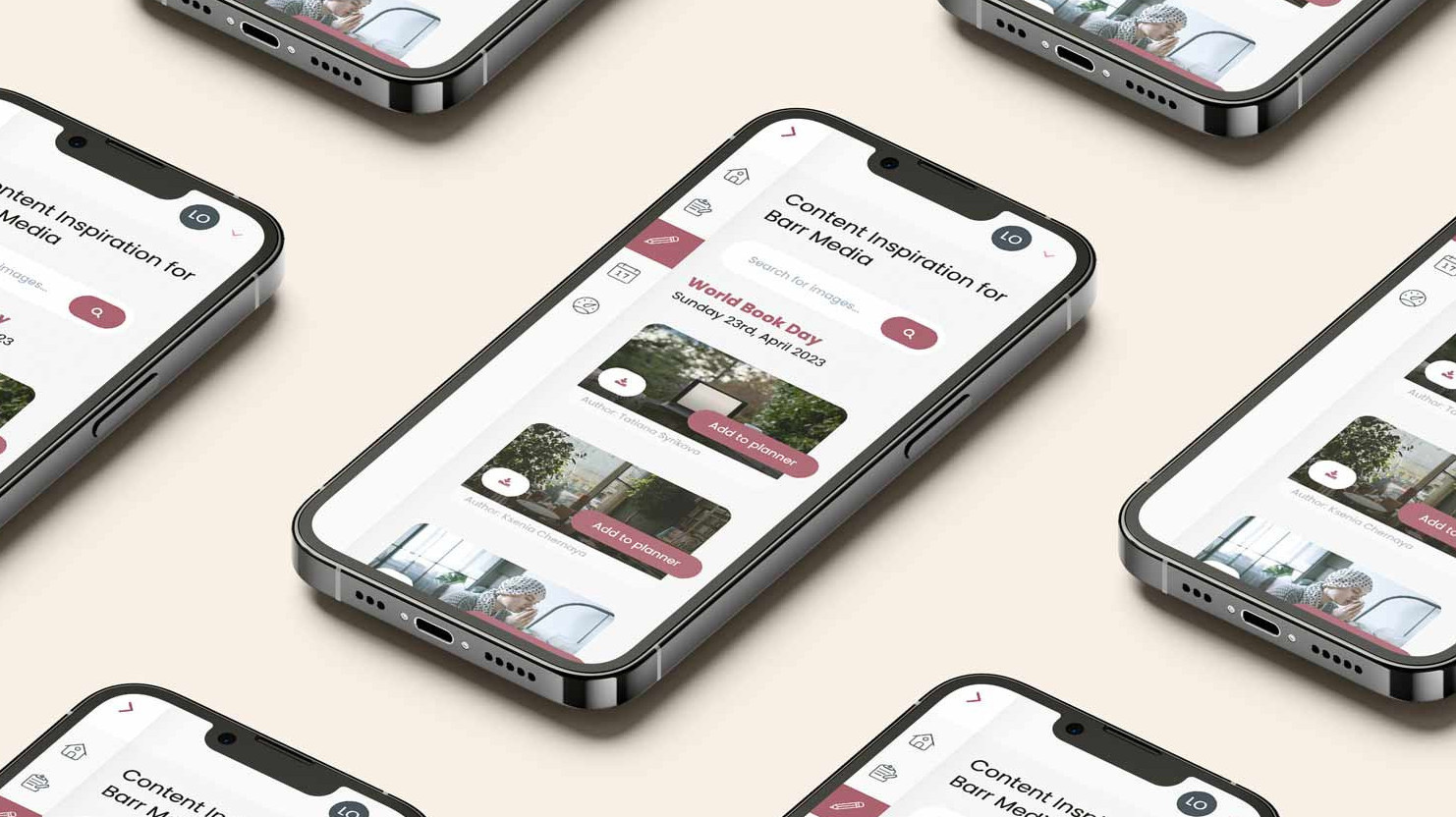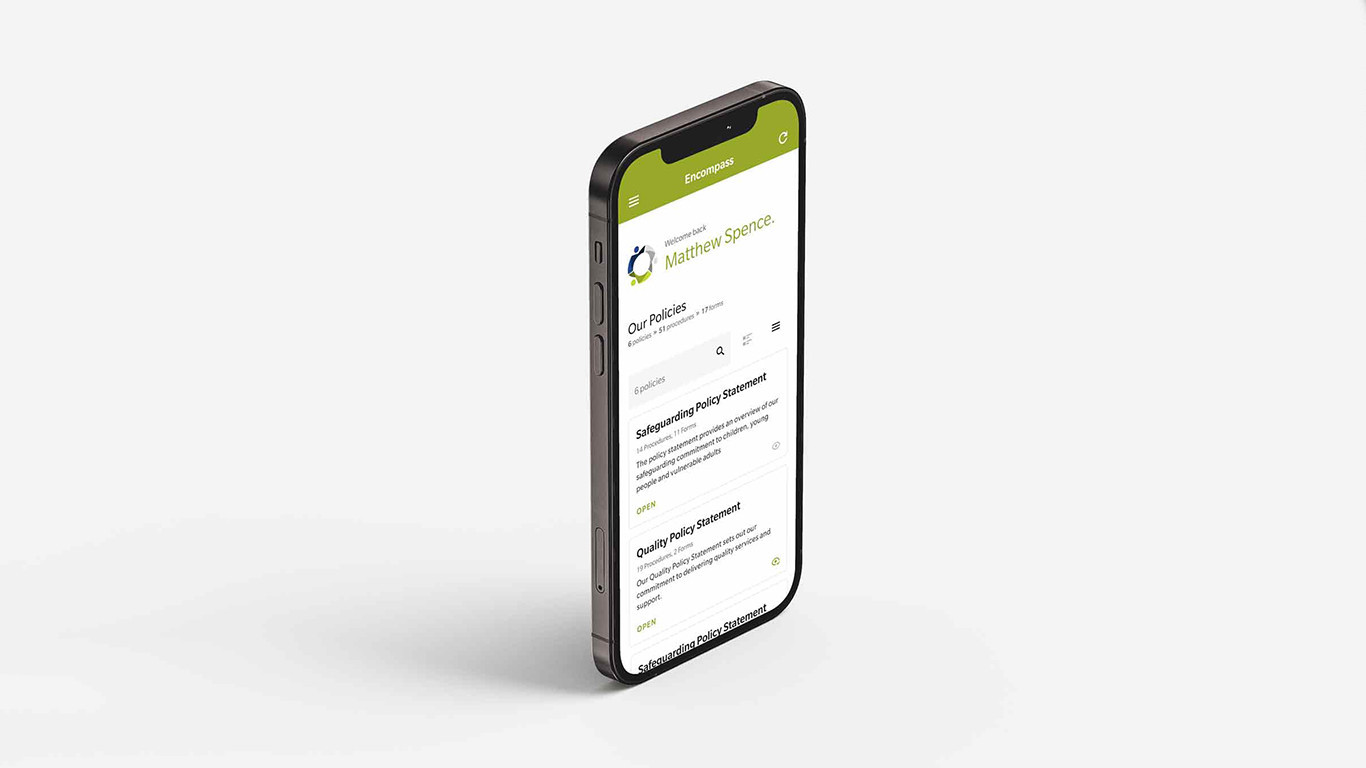Strategy
April 2023
How to Choose the Best Mobile App Development Company in 2023

App development for business has evolved over the last couple of years due to the global pandemic, which resulted in the rapid acceleration of the digital transformation of companies worldwide. As mobile apps continue to dominate the digital landscape, startups must stay level of these trends and leverage the latest tools and technologies to meet the evolving needs of consumers.
Mobile apps have become an integral part of marketing and revenue strategy as an effective way to connect with customers and engage with them more personally. However, building a mobile app requires expertise and experience, so hiring a professional mobile app development company is crucial. But with so many companies offering app development services, choosing the appropriate one for your business can be overwhelming. In our latest blog, we’ll discuss how to choose the most reliable development company in 2023.
Why Hire a Mobile App Development Company?
Mobile applications have become essential for any business's growth strategy, enabling businesses to engage with their customers and improve their overall experience. However, building cutting-edge apps requires expertise and experience, resulting in many businesses opting to work with a professional company to develop a mobile app. Here are some key reasons why businesses should consider partnering with a development agency:
- Access to Expertise: App development companies have specialised knowledge and skills that enable them to create high-quality apps. Their team of mobile application developers are well-versed in the latest app technologies and best practices. By partnering with a development company, businesses can leverage this expertise to build an app that meets their specific needs.
- Faster Time-to-Market: In today's fast-paced business environment, speed is critical. Mobile app developers can help businesses get their products to market faster by leveraging their expertise and experience. They can also provide guidance on app store optimisation and marketing, which can help brands reach their target audience more quickly.
- Quality Assurance: Development companies have a robust quality assurance process in place so the app is thoroughly tested before launch and performs well across all devices.
Partnering with a mobile app development company can provide businesses with the expertise, efficiency, and cost-effectiveness needed to create a high-quality app that meets their specific needs. With the mobile app market continuing to grow and evolve, businesses that invest in cutting edge app development can position themselves for long-term success.
How to Choose the Best Mobile App Development Company in 2023?
1. Look for Experience.

When selecting a mobile app development company, it's crucial to find a team that has previous experience creating applications similar to your project's unique specifications and requirements. A company with a relevant track record will not only understand your specific needs better but will also be equipped to anticipate and navigate potential challenges that may arise during the development process.
In order to comprehensively evaluate an app development agency's experience and determine if they're the right fit for your project, consider the following key factors:
-
Expertise: The company should have a proficient team with expertise in relevant technologies and platforms required for your project. For instance, if you're developing a native app, ensure they have experienced iOS or Android developers.
- Client Testimonials and Reviews: Past clients' testimonials and reviews can offer insightful perspectives about their experience with the company. Look for information about the company's professionalism, ability to meet deadlines, and responsiveness to feedback or problems.
- Industry-Specific Experience: If your app is for a particular industry like healthcare, finance, or education, it's beneficial if the company has experience in that sector. They will have a better understanding of user expectations, regulatory requirements, and common obstacles in that industry.
- Case Studies: Request case studies from the company. They provide a detailed breakdown of the objectives, process, and results of projects they've completed, offering a deep dive into their practical experience.
- Post-Launch Support and Maintenance: A company's job doesn't end with the launch of the app. Check the agency's experience in providing post-launch support and maintenance, including handling updates, fixing bugs, and implementing new features.
By assessing these factors, you can gain a thorough understanding of a mobile app development company's experience and capabilities. This will ensure you choose a company that is best suited to bring your unique app concept to life.
2. Quality Assurance

Quality assurance (QA) is an essential part of mobile app development. It ensures your application functions as intended, delivers a frictionless and engaging user experience, and is intuitive for the end user. QA testing focuses on finding and fixing potential glitches, bugs, or functionality issues, thus saving you from potential user dissatisfaction or even revenue loss.
If you're considering hiring mobile application developers, it's essential to critically evaluate its quality assurance practices. This helps guarantee that your application will undergo rigorous testing and optimisation stages before its public release, thereby minimising the risk of post-launch problems.
Here are some key factors to consider when evaluating a company's QA practices:
- Testing Methods: Explore what types of testing the company conducts. Effective QA should include functional testing, usability testing, performance testing, security testing, and compatibility testing across a range of devices and operating systems.
- Automated Testing: Automated testing can help streamline the QA process, particularly for large, complex apps. Find out how the agency utilises automated testing tools and frameworks to enhance testing efficiency and accuracy.
- Manual Testing: Despite the advantages of automation, manual testing is still crucial for evaluating the user experience, as it can catch problems automated tests might miss. Understand how the company incorporates manual testing into their QA process.
- Bug Tracking: Discover how the company tracks and manages bugs. They should use an effective system that records issues, assigns them for fixing, and verifies fixes in a systematic, transparent manner.
- Testing Environment: The company should be able to replicate different kinds of testing environments, such as low network connectivity or different device screen sizes, to ensure the app functions well in diverse scenarios.
- Post-Release Testing: QA doesn't stop at launch. Regular updates, added features, or OS upgrades can all introduce new issues, so post-release testing is important. Understand how the company handles this.
By considering these factors, you can ensure that the agency you choose will uphold high-quality assurance standards, which is fundamental for the ultimate success of your mobile app.
3. Development Process.

When considering the creation of a mobile application, the developmental process plays an integral role in determining the eventual success or failure of your project. This process is not just about coding or design; it encompasses a comprehensive cycle that includes initial planning, user experience and user interface design, development, testing, deployment, and ongoing maintenance.
Before deciding on a mobile app development company, it's crucial to meticulously evaluate the company's operations and work methodologies. This evaluation ensures that the company can meet your project's needs, can adapt to any changes, and can provide robust and future-proof solutions.
Here are some key factors to consider:
- Project Scoping: Understand how the company handles the initial stages of project scoping. This should involve defining clear and realistic project objectives, identifying target audience and potential challenges, and creating a strategic plan for project execution.
- UI/UX Design: Look at their user interface (UI) and user experience (UX) design capabilities. A well-designed app is visually appealing and easy to use, and it can significantly enhance user engagement and satisfaction. Check the company's previous designs and their approach to usability.
- Development Methodology: Analyze the company's preferred development methodology. Whether they use Waterfall, Agile, or a hybrid approach could affect project delivery times, flexibility, and overall quality.
- Testing and Quality Assurance: Find out about their testing and QA protocols. Rigorous testing is essential to minimize bugs and ensure the app's functionality and performance across multiple device types and operating systems.
- Post-Deployment Support: Post-deployment support is critical for app updates, bug fixes, adding new features, and regular maintenance. Ask how the company manages these aspects and whether they offer ongoing support contracts.
- Communication: Effective communication is essential for project success. Evaluate the company's communication style, responsiveness, and the tools they use for project management and collaboration.
By considering these factors, you can make a more informed decision when choosing a mobile app development company, ultimately leading to a more successful project outcome.
Enjoying what you're reading?
See our work4. Understand their Costs.

Understanding the costs associated with mobile app development is a fundamental factor in choosing the right development company. While cost shouldn't be the sole determining factor, it's important to have a comprehensive understanding of what you're paying for and how much you can realistically expect to spend. Unforeseen costs can have a significant impact on your project's budget and timeline, so careful financial planning is crucial.
When researching different app development companies, make sure to ask in detail about their pricing models and what components can influence the final cost. The price structure varies among companies; some charge a flat fee for their services, while others may bill based on the number of hours spent on the project, or offer a combination of both.
Here are some key considerations when understanding the cost structure:
- Development Approach: The choice between native, hybrid, or web applications can significantly affect the cost. Native apps usually require separate codebases for different platforms (iOS, Android), thus increasing the cost. On the other hand, hybrid or web apps can be cheaper but may not offer the same performance or user experience.
- Feature Complexity: The complexity and number of features in your app can heavily influence the cost. Advanced functionalities like augmented reality, machine learning, third-party integrations, or custom animations are more complex to implement and thus, cost more.
- Design: Custom UI/UX designs are often more expensive than using standard interface elements. The complexity of animations, the number of screens, and the amount of detail can all add to the cost.
- Maintenance and Updates: Post-launch maintenance, updates, bug fixes, and the addition of new features can add significantly to the long-term cost of the app. This is often overlooked when considering initial development costs.
- Project Timeline: If your project has a tight deadline, it might require more resources to complete on time, which can increase costs.
Before getting a price estimate, decide on the key features and functionalities you want your app to include. It's also a good practice to consider potential future features so you can discuss their implementation feasibility with the company upfront.
By gaining a thorough understanding of the costs associated with app development, you'll be better equipped to choose a company that not only fits within your budget but also delivers high-quality services. Remember that the cheapest option may not always provide the best value, so it's important to consider other factors such as experience, reputation, and portfolio quality alongside cost. Balance cost-effectiveness with quality and you will be making an informed and beneficial choice.
5. After-sales Support.

Choosing a mobile app development company with dependable after-sales support is paramount. The reality is that the app development journey doesn't conclude with the app's launch. There can be bugs that were missed during testing, regular updates required due to changing user preferences or technological advancements, and additional features to be added as per evolving business requirements or user feedback.
A proficient app development company should offer comprehensive ongoing support to ensure your app continues to function smoothly, remains up-to-date, and consistently meets your business needs. Here are some critical considerations when evaluating a company's post-launch support:
- Regular Check-ins: Companies should provide regular check-ins to review the app's performance, discuss any issues, and plan for future updates or features. These sessions ensure that the company is actively invested in the app's success.
- Bug Fixes: Despite rigorous testing, some bugs may only become apparent once the app is being used by real users. Quick and efficient bug fixes are vital to maintaining user satisfaction and app performance.
- Updates and New Features: The company should be capable of executing updates or adding new features as needed. This includes updates for OS compatibility, security patches, or new features to enhance user experience and functionality.
- Response Time: In the case of unexpected downtime or major issues, fast response times are critical. Understand how quickly the company promises to respond to critical issues and the usual timeline for resolving them.
- Scalability: If your app's user base grows or if your business expands, your app will need to scale accordingly. The company should be prepared to support such scalability requirements.
- Knowledge Transfer: The company should provide thorough documentation and, if necessary, conduct knowledge transfer sessions. This is important if you plan to eventually move the maintenance in-house or switch to a different provider.
Having a dedicated team available to support your app post-launch can ultimately save you time and money. It also gives you peace of mind knowing that your app is consistently monitored and managed, ensuring it remains an asset to your business in the long term. When a company offers reliable after-sales support, it demonstrates a commitment to your project's ongoing success and is a strong indication of their overall service quality.
Our Final Thoughts.
Choosing the right mobile app development company is a crucial decision that can impact the success of your business. With so many options available, it's necessary to take the time to evaluate your options and select a company that can develop a high-quality app. By considering the factors we've discussed, you can make an informed decision which aligns with your goals and objectives.
The mobile app development company you choose should be a long-term partner for your business and is critical to the success of your business. By considering the factors we’ve discussed and selecting a company that can provide ongoing support, you can be confident that your app will be of high quality, user-friendly and optimised for performance.
If you're keen to start an app development project, whether from scratch or with ongoing assistance, we encourage you to consider our team of skilled and experienced developers. We pride ourselves on working closely with our clients to understand their vision and goals, and we provide full ownership of all code and assets from the beginning. We'd love to help bring your app idea to life, so please don't hesitate to contact us for a free consultation. Our team is eager to discuss your project and provide insights and recommendations that can help you achieve your goals. Get in touch with us today to learn more!
